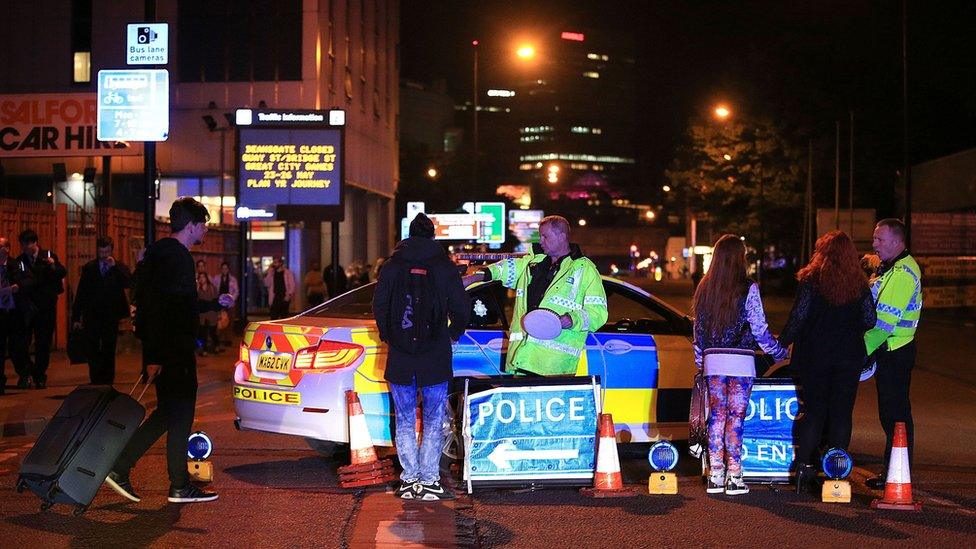Manchester Arena bombing: Key points from the official report
- Published
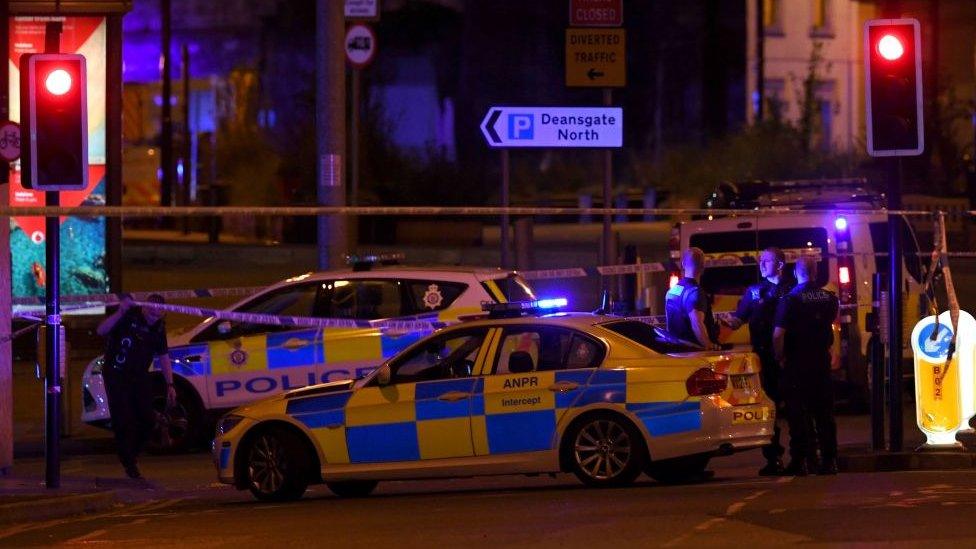
Ariana Grande had finished her set at the Manchester Arena last May and concert-goers - many of them children - were streaming out of the main performance area and into the lobby of the building. Parents waiting to collect young fans had gathered there; others were buying memorabilia or making their way to the nearby railway station.
Also in the foyer at that busy time was a man with a home-made bomb. He detonated it at 22:31, murdering 22 people and injuring more than 700.
Members of the audience said it sounded like a balloon bursting. British Transport Police, running toward the sound, assumed they had heard a train crash.
The emergency service response has now been assessed in an independent report, the Kerslake Review.
Here are six things we have learned.
Assumptions, confusion and delays hampered the response
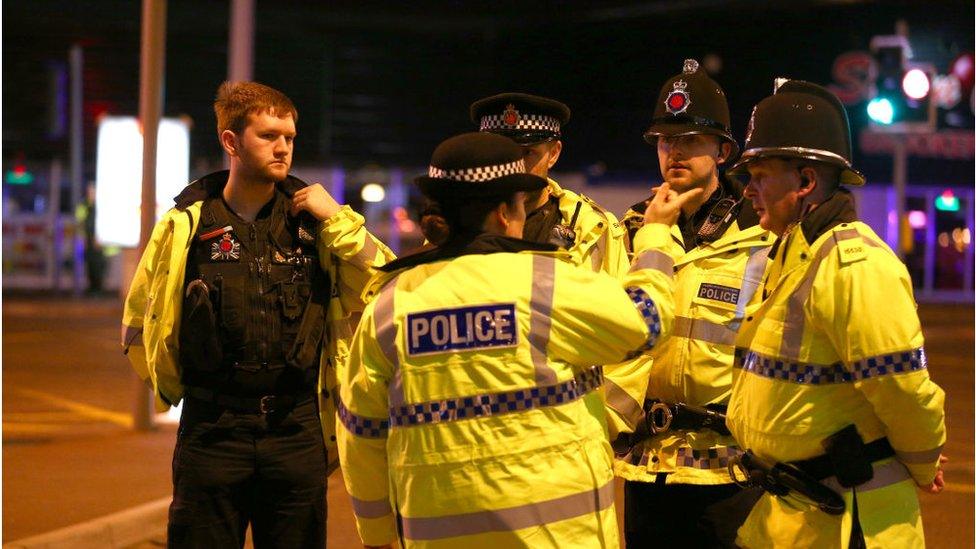
Poor communication was at the heart of many of the problems identified in the Kerslake report.
Some firefighters heard the explosion from their base at Manchester Central fire station, which is about half a mile from the concert venue, but they were ordered to drive to another station, three miles north of the city centre.
Because the fire service could not communicate directly with the police duty inspector - whose phone was in constant use - due to a lack of a radio link, it could not confirm the true situation and prepared for an escalating terrorist firearms attack - similar to those seen in Paris.
As a result fire crews stuck to national guidance, which say personnel should keep 500m (1,600ft) away from any zone of danger in such situations.
Meanwhile, the police duty inspector had declared the incident Operation Plato, the code name for the protocols meant to be followed in situations where there is a belief semi-automatic weapons are being used indiscriminately.
Because of communication difficulties neither the Greater Manchester Fire and Rescue Service (GMFRS) nor the North West Ambulance Service (NWAS) were informed or updated of the status of the operation.
GMFRS did not arrive at the scene for nearly two hours, meaning a valuable resource was not available to assist on the scene, particularly with the movement of those who were injured from the foyer to a casualty clearing station that had been set up on the railway station concourse.
A dedicated and regularly tested radio, operating between the control rooms of the police, ambulance and fire services, has now been established.
Kerslake recommendation: While not criticising the GMP force duty officer, the service should review its protocols to identify ways to reduce the load placed on the force duty officer during major incidents. This could include providing the force duty officer with a dedicated incident management support team as soon as possible.
'Crucial decisions' saved lives
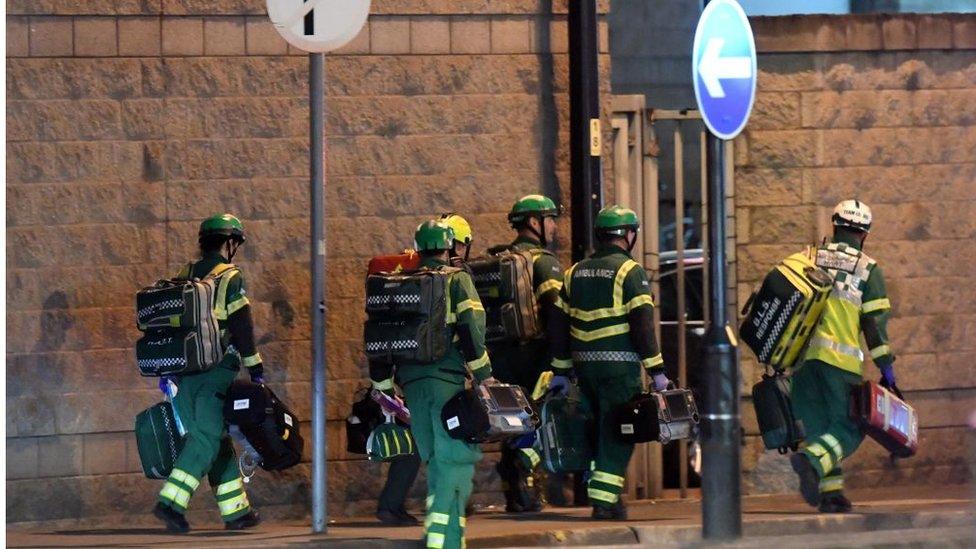
The area where the supposed shooting is going on is called a "hot zone", a safe area is called a "cold zone". A "warm zone" is an area where active terrorist activity has stopped, but cannot be guaranteed safe.
Within minutes the force duty officer had to make a life-or-death decision: should unprotected emergency responders be left in what was considered at that time to be a hot zone?
One of the rules under Operation Plato is that only suitably trained and equipped firearms officers should be in a hot zone. All other personnel should be evacuated.
The force duty officer decided that to tell the responders to evacuate would be "unconscionable". So they remained, treating patients and saving lives.
"In terms of protecting saveable lives," the Kerslake Review said, "this was one of the most crucial decisions taken on the night.
"The force duty officer should be congratulated for this dynamic decision making in an extremely stressful, chaotic and dangerous environment".
Kerslake recommendation:Sticking rigidly to the Operation Plato protocol may introduce the real risk that responders will be focused on written instructions when they should be trusting their own judgement and training...when protocols become too constraining there is immense value in empowering and enabling responders to deal with incidents using situationally aware, informed and risk-assessed initiative.
The emergency communication system failed
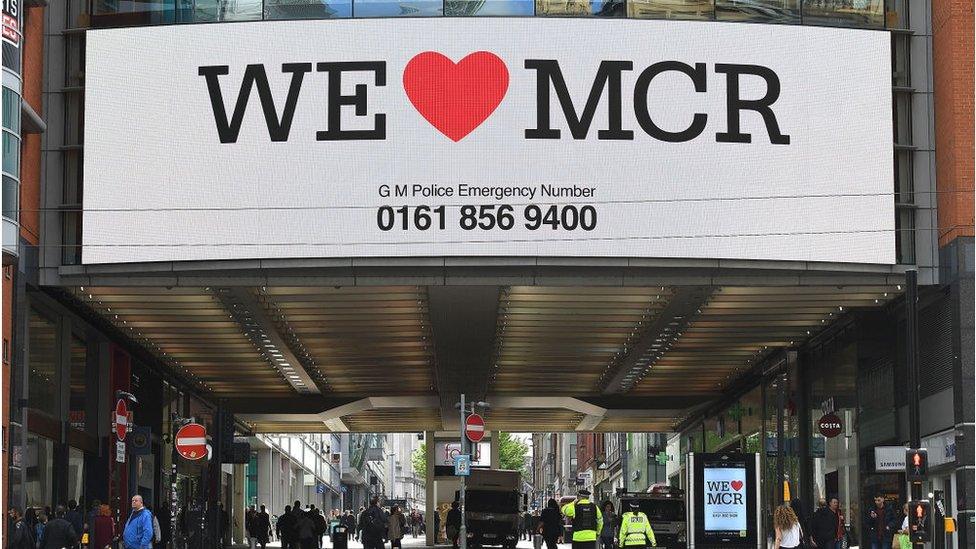
After an event such as the bombing, a casualty bureau is usually set up for concerned families to call and find out if their relatives were missing or injured.
This is done by something called The National Mutual Aid Telephony Service, which provides an 0800 number for worried members of the public and call handling for police forces.
This would have enabled other police forces to help call handlers in Greater Manchester and should have also allowed the local force to set up a bureau to coordinate information about missing and injured people.
The system could not be activated on the night of the Manchester attack because one of the servers was full. This meant a new message could not be recorded, and instead callers received a message from a previous incident.
Communication with the families caught up in the attack was badly affected. A restricted local telephone contact service was not up and running until about 03:00.
The report found: "This failure was a cause of significant stress and upset on the night to the families involved, who were seeking to find out more about the situation of their loved ones. A number were reduced to a frantic search around the hospitals of Greater Manchester to find out more".
Vodafone, which has held the contract since 2009, has said: "This was clearly unacceptable and we sincerely apologise for the distress caused to those affected by this terrible attack.
"We have since undertaken a major upgrade of the system in question and it is being tested on a daily basis."
The Kerslake report also said there was an inadequate level of knowledge or expertise within Vodafone or its sub-contractor Content Guru.
Kerslake recommendation: The Home Office should urgently secure appropriate guarantees from Vodafone that the necessary fall-back and disaster recovery arrangements are in place to address the failures which occurred.
Families felt 'hounded' by the media
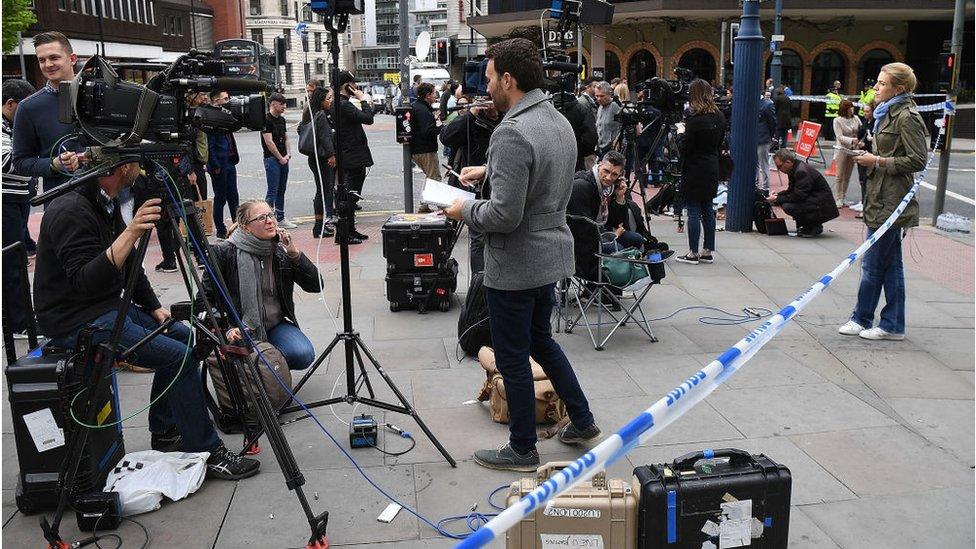
The focus of the "media storm" around the attack focusing solely on Manchester was criticised
Most participants of the Kerslake review who commented on their experience of the media in the attack aftermath were negative. People talked about feeling "hounded" and "bombarded".
Some described being put under pressure to participate in TV programmes.
One member of staff at a hospital said a tin of biscuits given to staff contained a note offering £2,000 for information about the injured.
At least two examples of impersonation were also reported - one respondent said they spoke to someone on the telephone who claimed to be a bereavement nurse, while another described talking to someone who claimed to be from the police.
Specific mention was made of photos being taken through glass windows of family being given news of bereavement. There were descriptions of people having to run to cars with coats over their heads to escape. Someone described having to be taken into hospital to see their injured child via a staff entrance because of the behaviour of some media representatives at the main entrance.
Several people told of news crews outside their homes. One mentioned the forceful attempt by a reporter to gain access through their front door by ramming a foot in the doorway. The child of one family was given condolences on the doorstep before official notification of the death of her mother.
Another family told how their child was stopped by journalists whilst making their way to school.
In the case of one family, which has subsequently been reported, the daughter was visited by a reporter at their home and given condolences on the death of her brother whilst her parents were at the family centre that had been set up at the Etihad Stadium. This took place on the morning following the attack. The family were not told that their son was likely to be among the fatalities until later that day.
In response Matt Tee, chief executive of the Independent Press Standards Organisation (IPSO), said: "It is clear that the behaviour of some, but by no means all, of the media added to the distress experienced by some families of victims.
"The editors' code - the set of rules that IPSO members must follow - requires journalists to approach bereaved family members with sympathy and discretion, to ensure their reports are accurate and to respect people's privacy and stop their approaches when asked to do so.
"We will be looking at what more we can do to support victims, families and the agencies that work with them as well as making sure that IPSO-regulated publishers are aware of their obligations and responsibilities under the Editors' Code of Practice."
Kerslake recommendation: IPSO should review its code of conduct and consider developing a new code specifically to cover such events.
How survivors and the bereaved were treated
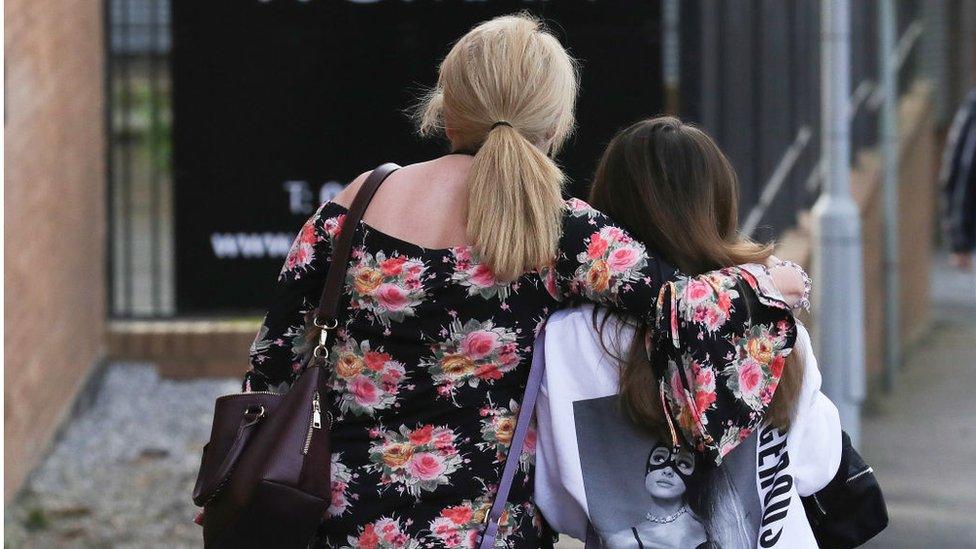
The Kerslake Review promised to "put the experience of bereaved families" at the heart of the report, and spoke to many of the people affected.
Some talked about the arrangements made for them to see their deceased loved one.
"Our expectations were that he'd be pulled out of a freezer … the reality was that he was actually lying in a room set up like a hospital room, he was in a bed, his head was on a pillow and he was covered up with a duvet. The room had a pleasant temperature and he looked as if he was in a deep coma rather than dead. The nurse gave me a little cuddly toy telling me it was with him throughout the whole time he entered the building. We were given time alone with him and were allowed to hug and kiss him. The nurses were available to comfort us before and after."
Many praised a vigil staged at the station before it re-opened.
"We went to the vigil that was in the train station … and they made it so beautiful... there was a stand with their names on, everybody was there for that reason," said one relative.
How the public helped those affected
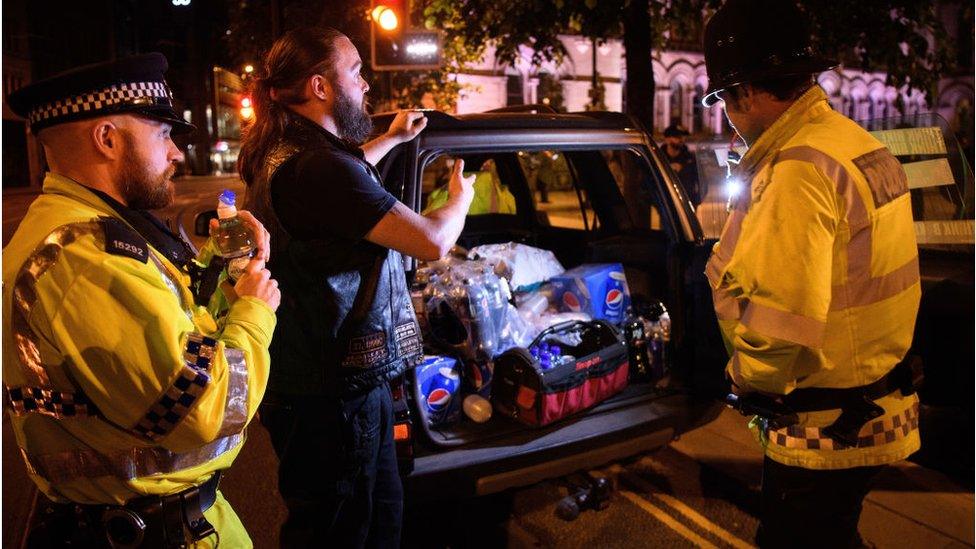
The Kerslake panel praised a number of people for their courage, including staff from Northern rail who were asked to leave the arena for their own safety by police officers but refused, choosing to stay with the casualties.
In addition to members of the public who ran to help, staff with no formal remit in this role "selflessly and bravely did their best to provide care and support and undoubtedly made an important contribution to the response.
"Others also played a part away from the Arena whether providing shelter in local hotels or donating food and drink. Every one of them is owed a debt of gratitude".
- Published27 March 2018
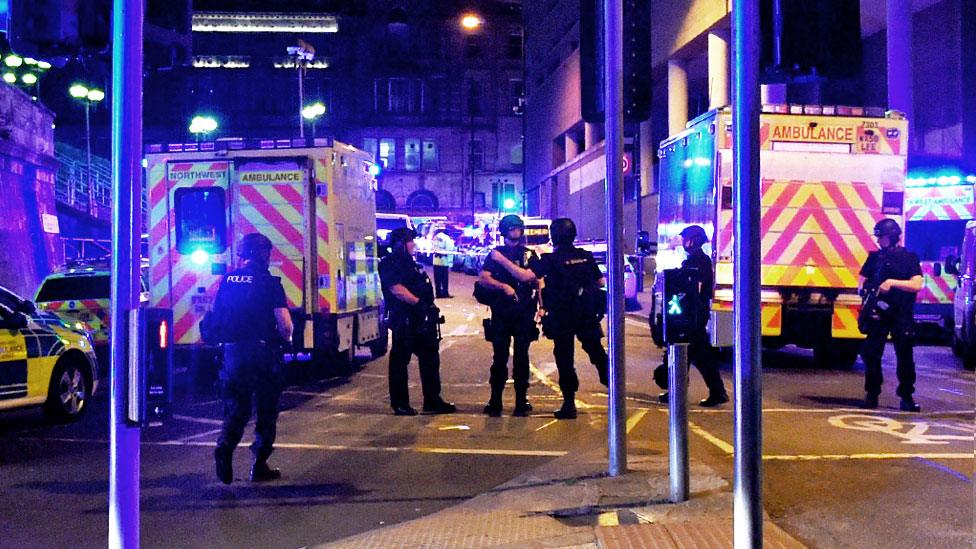
- Published27 March 2018
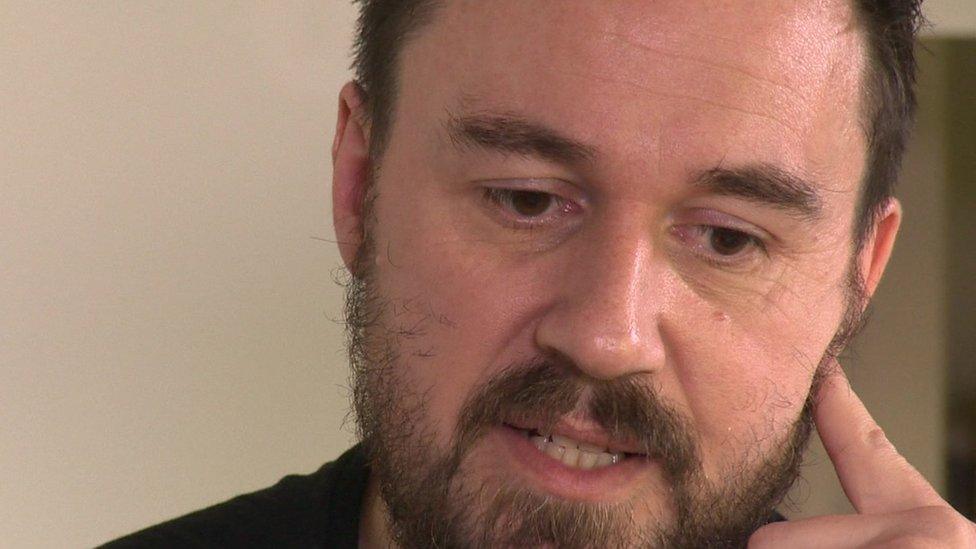
- Published3 November 2022

- Published27 March 2018
